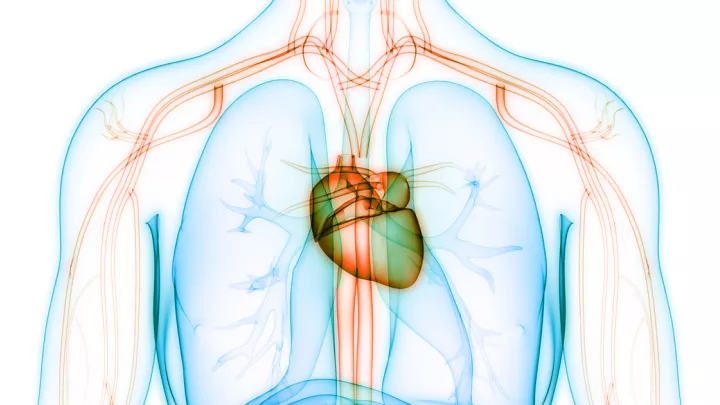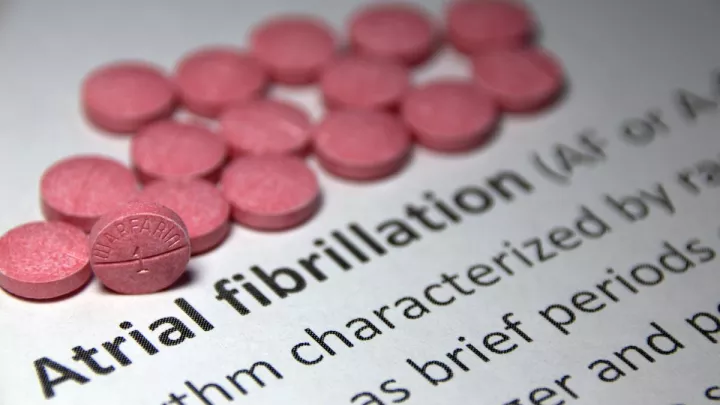What is pulse field ablation, and how is it used to treat arrhythmia?

Pulse field ablation is a brand-new heart procedure. It's designed to help patients with atrial fibrillation or AFib. The Food and Drug Administration approved the procedure in December 2023. In March 2024, an Omaha woman was the first in an eight-state region to undergo the new procedure at Nebraska Medicine.
“AFib is a disease characterized by episodes of a chaotic, disorganized, rapid rhythm involving the heart's atria,” explains Nebraska Medicine electrophysiologist Jason Payne, MD.
Atrial fibrillation affects more than five million people in the US alone. While AFib itself is not life-threatening, it can cause serious problems like congestive heart failure or stroke. Many things can cause AFib, including:
- Getting older (Atrial fibrillation is generally seen in the 60s to 70s). However, with the advent of smart wearable devices, we are finding it less commonly in much younger individuals as well.
- High blood pressure
- Diabetes
- Obstructive sleep apnea
What is atrial fibrillation?
Atrial fibrillation is the most common cardiac arrhythmia. It’s an irregular quivering of the heart's upper chamber caused by dysfunction in its conduction system and atrial muscle. For some people, AFib episodes stop on their own. For others, episodes may continue for hours, days, weeks, or even years without intervention by a physician.
Common symptoms of AFib include:
- Rapid, erratic heartbeats
- Heart palpitations
- Flutter sensations
- Dizziness
- Weakness and fatigue
- Breathlessness
What treatment options are there for AFib?
Many patients qualify for a minimally invasive procedure known as an ablation. Ablation involves the advancement of catheters into the heart. Previously, it involved targeting abnormal cardiac tissue (which causes irregular heart rhythms) with thermal energy, either extreme heat or cold. However, this comes with safety concerns. Other structures around the heart can be collaterally damaged by thermal energy.
Catheter ablation and/or surgery for treating atrial fibrillation are not the best option for everyone. For many patients, the risks of surgery or ablation are too high, and medications are the best options for therapy.
How is pulse field ablation different than traditional ablation?
The new procedure, pulse field ablation, uses a high electrical field gradient to create small pores in the cell membranes. The cells cannot repair these pores, and they lose function.
Dr. Payne explains that the new procedure permanently affects cardiac tissue more than surrounding areas. “Cardiac cells are most susceptible to this energy, so that we can target the abnormal cardiac tissue while sparing the lungs, nerves, esophagus and blood vessels.”
The main benefit of pulsed-field ablation is its added safety to the procedure. The secondary benefit is that it can be quicker than traditional ablation methods.
Most patients can have the procedure in the morning, be home by the afternoon, and resume normal activity within 2-3 days. After treatment, on average, symptoms are significantly reduced, and long-term survival is better.
Dr. Payne says more patients are being diagnosed with AFib every day. “Pulse field ablation allows us to treat patients faster and safer than we've been doing it previously,” he says. “Having this treatment option will help us meet the needs of our community.”
Our physician team here at Nebraska Medicine has been successfully using this technology since the launch.
Don't wait to seek treatment if you have atrial fibrillation. Call 800.922.0000 to schedule an appointment today.







